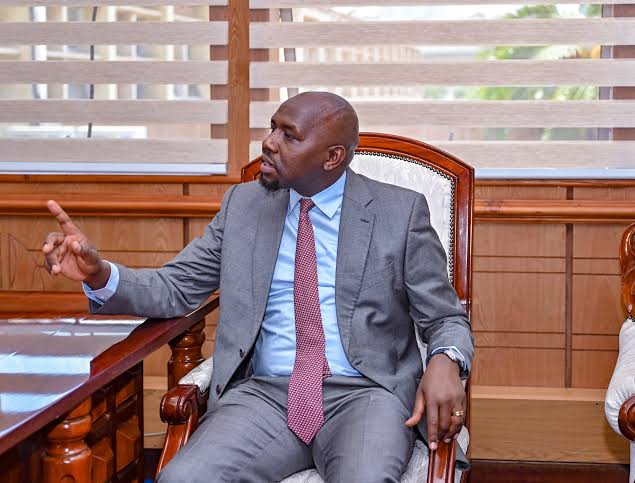Interior Cabinet Secretary Kipchumba Murkomen is facing sharp criticism after making explosive claims that the BBC’s investigative documentary, ‘Madams: Exposing Kenya’s Child Sex Trade’, was fake.
In his remarks, Murkomen alleged that the broadcaster paid, pampered, and coached sources to give false accounts about a child sex trafficking network in Mai Mahiu, further claiming that some witnesses lied about their ages to appear as minors.
The BBC responded with a strongly worded statement rejecting every allegation and describing Murkomen’s claims as dangerous lies that attack survivors and undermine the fight against Kenya’s underground trafficking network.
The broadcaster said it would not allow politics to silence the women who risked everything to share their stories.
“For clarity, none of the contributors featured in this film were paid, offered payment, or ‘coached’ in any way,” BBC Africa Eye stated. The BBC further clarified that all those interviewed were over 18 during filming but had been sexually abused as minors, a fact clearly disclosed in the documentary.
The exposé revealed a deeply entrenched child sex trafficking ring allegedly run by women known as “madams.” Undercover footage showed them offering children, some as young as 13, to potential clients.
According to the BBC, this evidence was gathered through undercover investigative work, not fabricated testimonies.
Murkomen, while appearing before Parliament on August 13, said his ministry’s follow-up investigations found four women claiming the BBC approached them under the pretext of a fake foreign sponsorship programme.
He also alleged that the two women portrayed as ringleaders had gone into hiding after being promised large sums of money, and suggested that many of the witnesses were connected to each other, implying collusion.
The BBC accused the government of mishandling the matter, saying DCI officers interviewed survivors without legal counsel present.
Human rights groups have long cautioned that such interference discourages victims from coming forward, particularly when powerful individuals may be involved.
The broadcaster stressed that the integrity of the exposé remained intact and that its work was an important piece of public interest journalism.
Following the documentary’s release, public outrage erupted across Kenya, with citizens demanding the arrest of the alleged madams and thorough investigations into child sex trafficking networks.
Many accused the government of shifting focus from protecting victims to discrediting investigative journalists.
Civil society organisations have thrown their support behind the BBC, urging authorities to prioritise survivor protection over political battles.
This clash between Murkomen and the BBC has not only deepened tensions between the Kenyan government and a respected global media house but has also drawn international attention to the country’s struggle against child sex trafficking and the political forces accused of undermining it.



